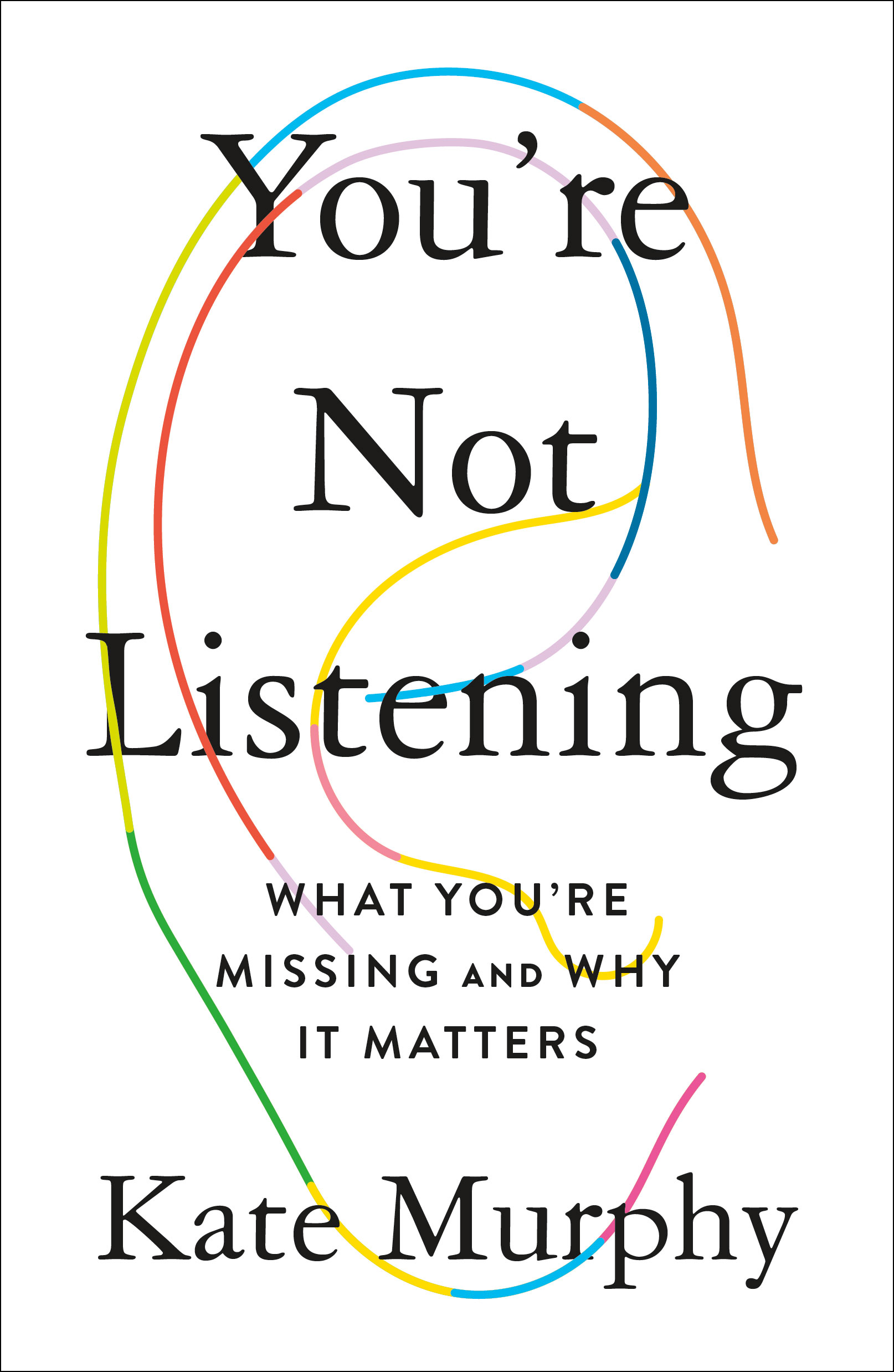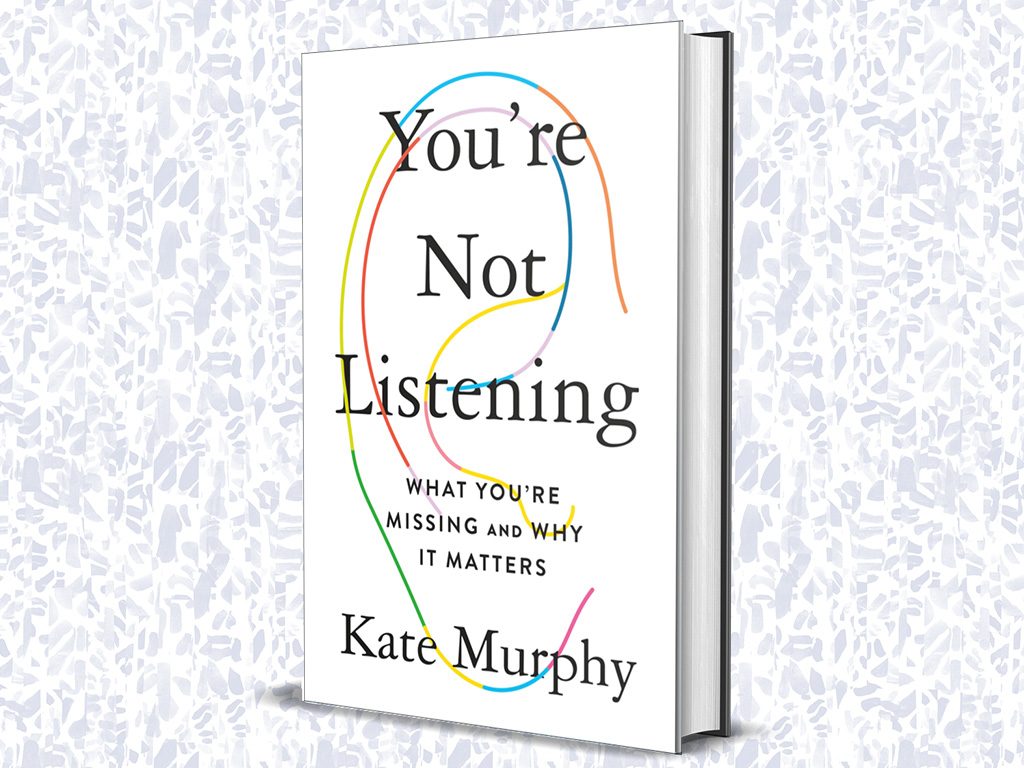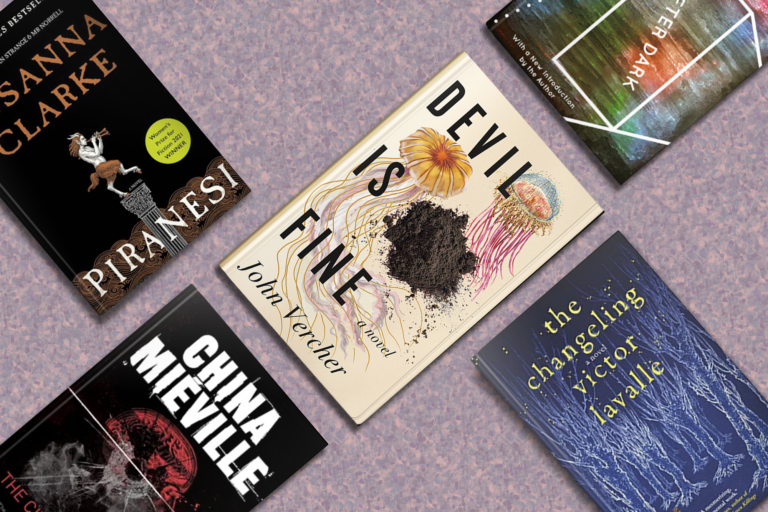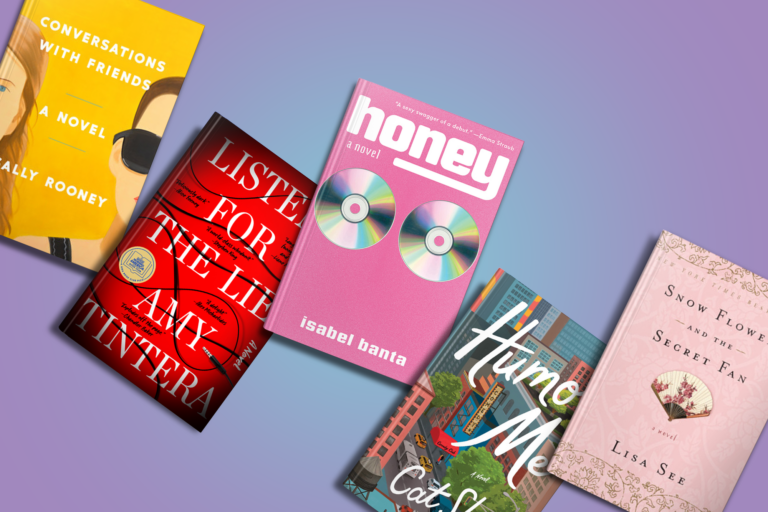
How did you get the idea to write this book?
There were so many things nudging me to write this book, not least the shouting matches that now qualify as political discourse and people’s seeming inability to have sustained conversations without glancing at their phones. But what really convinced me was other people’s reactions when I listened. As a journalist, I listen for a living, and, increasingly, people I interviewed seemed surprised, almost taken aback, that I was actually paying attention to what they said. They began telling me profoundly personal things, wholly unrelated to the stories I was writing, as if they’d been long waiting for the opportunity. And these were very successful, well-connected people — not lacking for company, but apparently lacking for listeners. These exchanges were both striking and touching and served as the jumping off point for the book.
What does it mean to be a good listener?
People, even experts in communication, have a really hard time answering that question. Interestingly, people find it much easier to describe what makes someone a bad listener — interrupting, looking around the room, fidgeting, responding with a non sequitur — possibly because they have more experience being ignored or half-heard than gratifyingly understood.
But what I found is that listening, rather than being a checklist of dos and don’ts, is more a state of mind. It’s about getting yourself in a receptive mode and also developing an awareness of the kinds of things that hijack your attention, cloud your perceptions, and make you zone out during a conversation. And, just as importantly, listening has to do with how well you respond — the degree to which you are able to encourage and elicit the clear expression of someone else’s thoughts. It’s both an art and a skill.
You're a journalist. What has your career taught you about how (or how not) to listen?
One of the most valuable lessons I’ve learned as a journalist is that silence is not only okay but an invitation. Insights often come not from incisive questioning or energetic repartee, but from keeping your mouth shut and allowing people the time and space to say what they need to say.
In the book, there’s a section that talks about how listening well can put you “in sync” with a person. Can you explain what that means and how that happens?
When you listen and really grasp what another person is saying, your brainwaves and those of the speaker are literally in sync. By looking at brain scans, neuroscientists have found that the greater overlap and similarity of neural impulses between speaker and listener, the greater the understanding. It’s observable, measurable proof of listening, comprehension, and connection. You know it’s happening when you have that “Oh I get it” moment or sense of clarity when someone else is talking. You’re on the same wavelength, even if you don’t necessarily agree.
Explain what you call in the book “mental side trips” that can derail us during conversations.
It has to do with something called the speech-thought differential which basically means we can think a whole lot faster than someone can talk. What happens is we use our excess cognitive capacity to take mental side trips. We check out momentarily to wonder if we have spinach in our teeth. We remind ourselves to get milk on the way home or worry about how much time is left on the parking meter. We get sidetracked by things like the speaker’s hair, clothing, body type, or maybe a large mole. Of course, the biggest distraction is thinking about what urbane, witty, or, in contentious situations, devastating thing we want to say next.
You make the argument that good listeners react to what people are saying, not thinking about what to say as someone talks. But, planning what to say can ease anxiety when talking to someone new or intimidating.
It’s tough because everyone fears fumbling for words, or worse, saying the wrong thing when it’s their turn. But if you check out of the conversation prematurely to ready your rejoinder, you increase your chances of responding inappropriately or insensitively. It’s kind of like trying to return a serve in tennis without keeping your eye on the ball. You’re going to miss.
A better response will come to you when you have taken in all that the other person has to say. Then, pause if you need to after the other person concludes to think about what you want to say. And if you’re still at a loss, it’s okay to say, “I don’t know what to say.” You can also say, “I’d like to think about that,” which conveys that you honor what the other person said by taking time to think about it, while, at the same time, honoring that part of you that is uncertain or anxious and needs time to process. Better that, than responding in a way that reveals you weren’t really listening.




